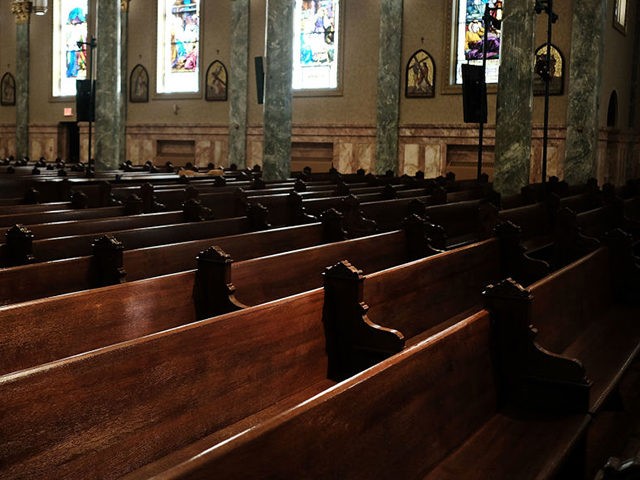San Francisco Archbishop Salvatore Cordileone has denounced the “colossal overstep of governmental authority” evidenced by California’s bans on religious worship.
Attempts by California officials at different levels of government to shut down public worship to counter the coronavirus constituted a “blatant disregard of the Constitution,” Archbishop Cordileone wrote in a February 11 op-ed in the Wall Street Journal.
“Political elites issuing health orders that they themselves don’t obey — and destroying countless livelihoods without any scientific basis for such action — is infuriating,” the archbishop wrote.
When it comes to the constitutional right to worship, “California began to follow the science only after a recent Supreme Court intervention,” he noted, in reference to the U.S. Supreme Court’s ruling last Friday overturning California’s ban on indoor church services.
In the case of South Bay United Pentecostal Church v. Newsom, Chief Justice John Roberts wrote in the opinion for the Court’s 6-3 majority that the state had not followed the science in its evaluation of safety measures for public worship but instead had undervalued the essential right to worship.
“The state’s present determination — that the maximum number of adherents who can safely worship in the most cavernous cathedral is zero — appears to reflect not expertise or discretion, but instead insufficient appreciation or consideration of the interests at stake,” Roberts wrote.
For his part, Justice Neil Gorsuch noted that “California has openly imposed more stringent regulations on religious institutions than on many businesses” in its efforts to curb the spread of the coronavirus.
“When a State so obviously targets religion for differential treatment, our job becomes that much clearer,” Gorsuch wrote. “As the Ninth Circuit recognized, regulations like these violate the First Amendment unless the State can show they are the least restrictive means of achieving a compelling government interest.”
“Drafting narrowly tailored regulations can be difficult,” Gorsuch concluded. “But if Hollywood may host a studio audience or film a singing competition while not a single soul may enter California’s churches, synagogues, and mosques, something has gone seriously awry.”
In his Thursday op-ed, Archbishop Cordileone said that in lifting “California’s blanket ban on indoor worship, the high court rightly acknowledged the blatant unfairness of treating religious worship differently from secular activities such as shopping.”
Cordileone criticized the often arbitrary distinction between “essential” and “non-essential” work and activities. While this distinction is bad enough, he wrote, “when it comes to faith it represents a colossal overstep of governmental authority.”
“Only religious authorities have the right to determine which religious services are essential for their people,” he stated. “Even the most restrained interpretations of the First Amendment would have to admit this.”
Lamenting the fact that for months millions of Americans were deprived of the simple, natural right to worship, Cordileone declared that such “blatant disregard of the Constitution bodes ill for everyone.”
“Court rulings don’t change the science,” he insisted.
The Supreme Court’s decision “allows us to exercise our constitutionally protected natural right to worship God without fear of harassment from government officials. For that, I am profoundly grateful,” he said.

COMMENTS
Please let us know if you're having issues with commenting.